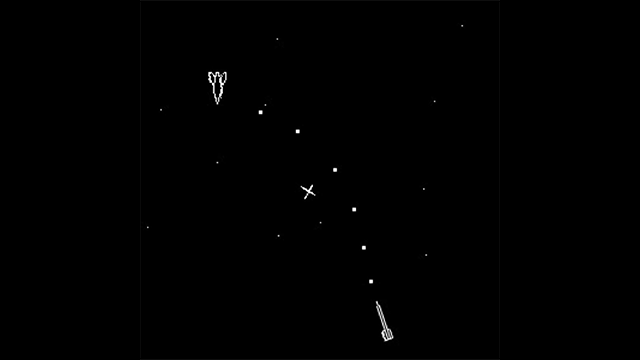In the beginning, there was space. This is true of the universe and of video games. The earliest games depicted starfields and spaceships because of technical limitations as much as artistic license. A black screen with white dots handily represented a galaxy of stars, and that’s what led to 1962’s Spacewar. Installed on academic PDP-1 computers at MIT, the game spread to several academic installations. As new students received the program, the game expanded. It became the first program of its type to run on multiple computer installations in different locations. Now, the original developers will receive Pioneer Awards for their contributions to video game history.
Developers Dan Edwards, Martin Graetz, Steven Piner, Steve Russell, Peter Samson, Robert Saunders, and Wayne Wiitanen will be in attendance at the ceremony, taking place at the Smithsonian later this week. The talk will cover how Spacewar came about in the developer’s free time after getting access to the then-impressive technology. It will be the first time that the developers of Spacewar have gathered to talk about their work kickstarting the multi-million dollar video games industry.
For their contributions to the interactive entertainment industry, we will be presenting Pioneer Awards to the creators of Spacewar! at an event hosted by the Smithsonian National Museum of American History! More info: https://t.co/ygQfR0cifr pic.twitter.com/RSHW82J2Hp
— Academy of Interactive Arts & Sciences (@Official_AIAS) November 26, 2018
The panel is to be moderated by Bethesda founder Christopher Weaver, who serves as the chairman of the Videogame Pioneers Initiative Advisory Group. Other members of the group include Warren Spector (System Shock), Sid Meier (Civilization), John and Brenda Romero (DOOM), Richard Garriott (Ultima) and Insomniac President Ted Price.
The Lemelson Center for the Study of Invention and Innovation at the Smithsonian has an ongoing preservation effort for video games. On display at the museum now is a recreation of Ralph Baer’s workshop. Known as the “Father of Video Games”, Baer invented the Magnavox Odyssey, the first commercial home video game console. Baer’s Odyssey console is a past recipient of the Pioneer Award alongside Pong and the Zork series.
If you’re interested in trying out Spacewar for yourself, the Internet Archive has an emulated version of the original program up and running. It’s rather unintuitive to use, but the original hardware wasn’t primarily a games machine. Either way, it’s a fascinating look back at where we’ve all come from.







